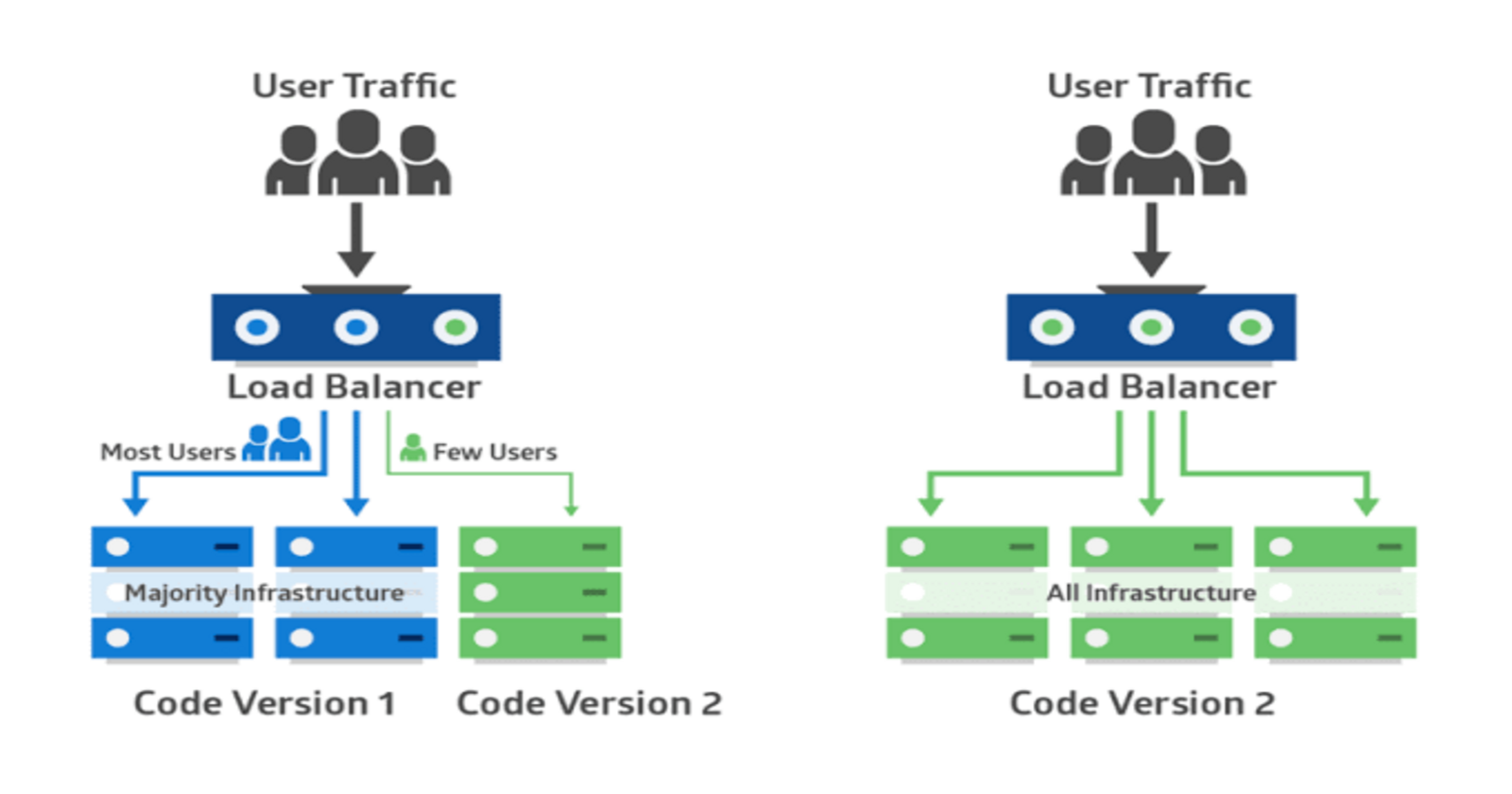Canary Deployment Strategy
 Yash Varma
Yash Varma
A continual difficulty in the fast-paced field of software development is distributing updates while avoiding risks. Presently, canary deployment is a technique that enables teams to roll out changes incrementally, lessening the effect of any problems and obtaining important information ahead of a full rollout.
What is Canary Deployment?
Canary Deployment is a strategy where new features or upgrades are progressively sent out to a subset of users or servers before being released to the complete infrastructure. The approach gets its name from the practice of employing canaries in coal mines to detect dangerous gasses. Before releasing the new version to the general public, developers can utilize this controlled release to observe how it behaves and performs in an actual setting.
Working of Canary Deployment?
Initial Deployment: The first phase of software deployment involves the distribution of the updated version to a limited, representative group of users or servers, commonly known as the "canary group" or "canary servers."
Monitoring: During the canary deployment phase, metrics including error rates, latency, and user input are actively watched. This monitoring aids in identifying any abnormalities or problems with the new version that could occur.
Gradual Rollout: If the new version fulfills the required standards and operates as intended, additional users or servers are added to the deployment over time. Before a full deployment, this phased rollout enables engineers to manage any potential problems and reduce risks.
Rollback: To reduce the impact on users in the case of unforeseen problems or a noticeable drop in performance, the deployment may be swiftly and easily rolled back to the prior version.
Benefits of Canary Deployment
Risk Mitigation: Teams can lower the chance of widespread disruptions by identifying and resolving issues before they impact a broader audience by distributing updates gradually to a limited selection of customers.
Real-time Monitoring: Canary deployments give teams access to real-time information regarding the behavior and performance of the new version, enabling them to decide when to move forward with the rollout based on data.
Faster Feedback Loops: During the early stages of the software deployment process, developers receive feedback on the new version, which allows them to iterate and enhance the program more quickly.
Enhanced Confidence: Teams are more confident in their deployments when they have the capacity to oversee and manage the rollout process, which results in more frequent and seamless releases.
Optimal Methods for Canary Deployment
Describe the Success Criteria: The measurements and thresholds that decide if the canary deployment is effective and prepared to be expanded to more users or servers should be clearly defined.
Automated Observation: Track key performance metrics and look for any departures from expected behavior during the deployment by using automated monitoring tools.
Begin Little: For the initial canary deployment, start modest with a small percentage of users or servers and increase the distribution gradually as user trust in the new version increases.
Communicate Openly: Inform all relevant parties about the deployment process, including any modifications, problems, or potential rollback choices.
Rollback exercises: Test rollback processes often to make sure they are dependable, quick, and cause the least amount of disruption in the case of a deployment failure.
Conclusion
One useful tactic for managing the complexity of software upgrades is canary deployment. Teams can provide an easy experience for users while lowering risks by deploying changes gradually and tracking their effects in real time. By incorporating Canary Deployment into an agile development process, teams can innovate quickly while upholding the highest levels of dependability and quality. Canary Deployment is still a guiding principle in the frequently shifting technological seas as software development advances.
Subscribe to my newsletter
Read articles from Yash Varma directly inside your inbox. Subscribe to the newsletter, and don't miss out.
Written by

Yash Varma
Yash Varma
As a final year undergraduate with a passion for Cloud DevOps Engineering, I bring a strong foundation in cloud computing and automation to the table. I have a solid understanding of cloud platforms such as AWS or Google Cloud and have honed my skills in infrastructure as code (IaC) using tools like Terraform and CloudFormation. I am eager to apply my knowledge of CI/CD pipelines, containerization, and version control systems to contribute to efficient and automated software development processes. I am a quick learner, highly motivated, and excited to embark on a career in Cloud & DevOps, where I can leverage my technical expertise to drive innovation and streamline operations. In addition to my proficiency in cloud technologies, I bring a wealth of experience in crafting efficient CI/CD pipelines, implementing containerization strategies, and managing version control systems. My eagerness to learn, coupled with my inherent motivation, fuels my drive to continually enhance processes and drive innovation in software development. I am poised to make a significant impact in Cloud, DevOps and DevSecOps leveraging my technical prowess to streamline operations and catalyze organizational growth. Well i am a part-time competitive Coder too, I have a solid understanding of Data Structure and Algorithms as well as of Object Oriented Programming. I usually code in C++ and have the familiarity with Java and Python as well as i also have the intermediate knowledge of Rust Programming language too. Some of my coding achievements are 5🌟 @HackerRank || 4🌟 @CodeChef(Max.Rating->1845) || Knight🔰 @LeetCode(Max.Rating->1858). Along with all these stuffs i have the understanding of Cloud Platforms like Amazon Web Services (AWS) and Google Cloud Platform (GCP). I was also a Google Cloud's Arcade Facilitator in 2k23 where i had mentored 150+ student's and professional's in gaining knowledge about the Google Cloud Platform (GCP). Moreover I had also won some of the Google Cloud's events like Google CRFP'22 || Google CCP'23.